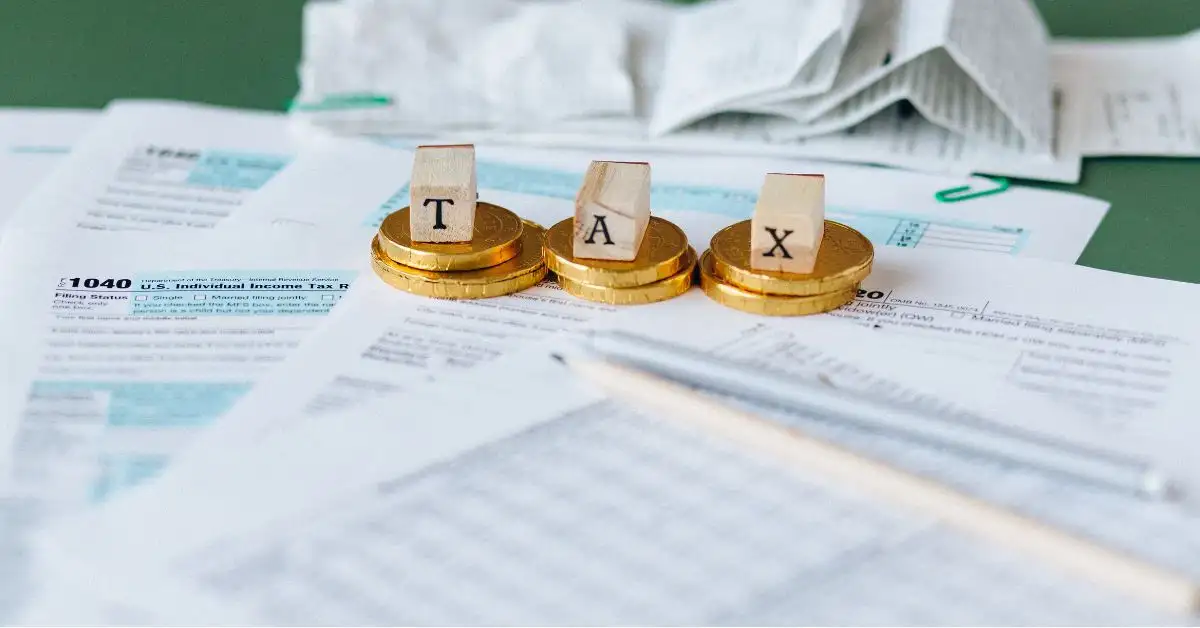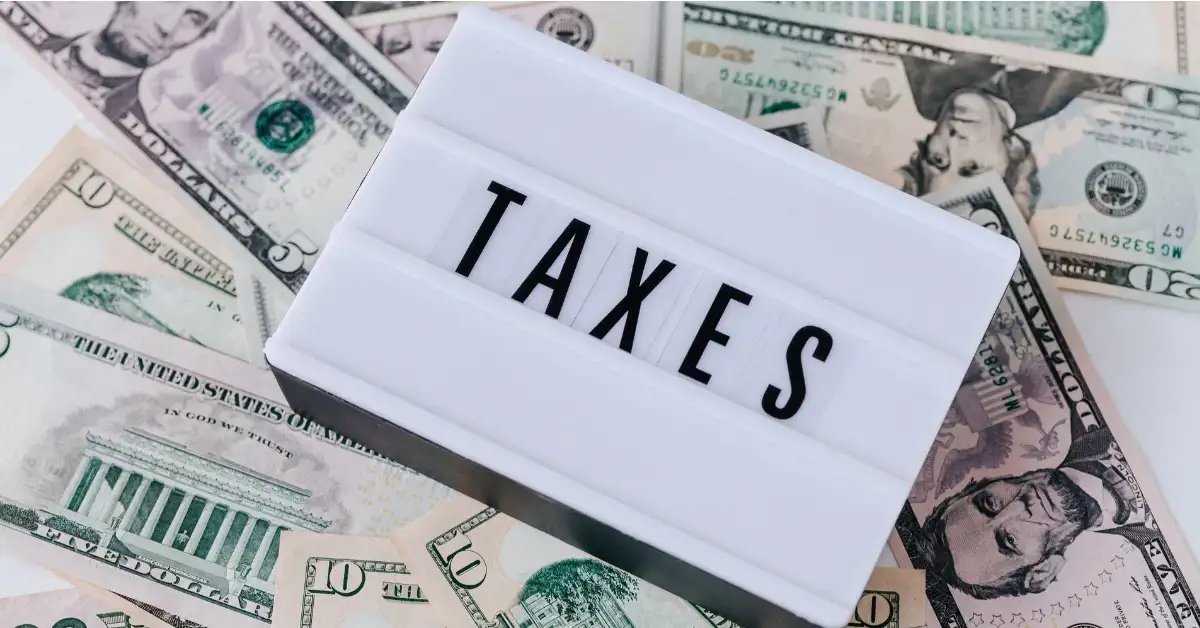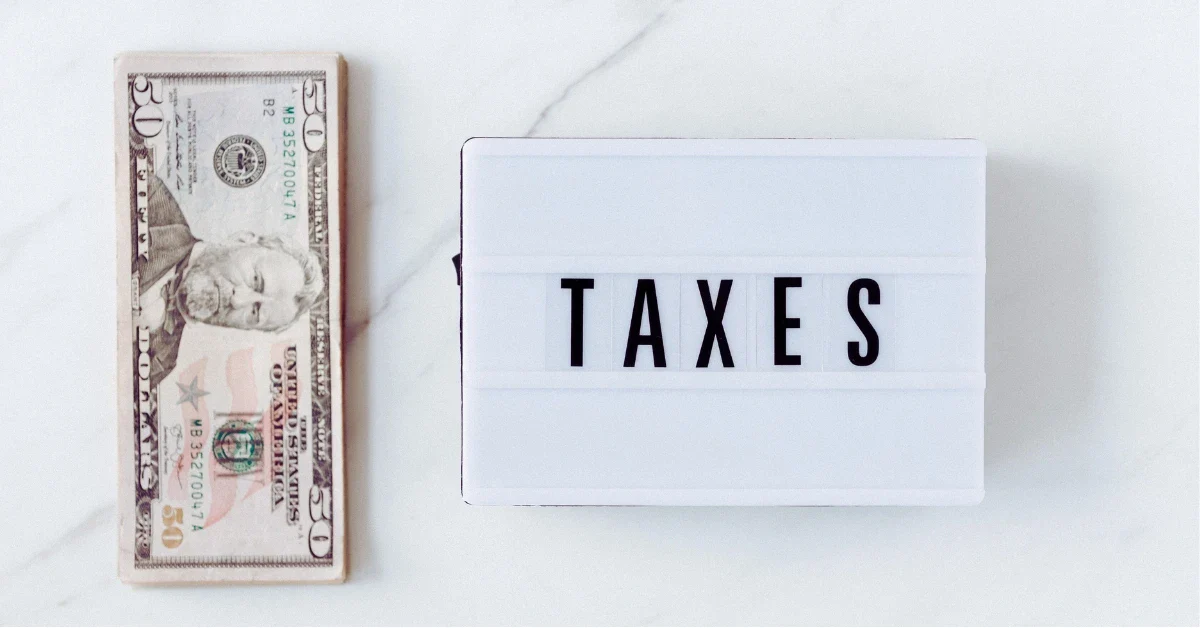Landlord tax varies based on several factors such as the rental income received, expenses incurred, and the landlord’s tax bracket. On average, landlords in the united states pay around 30% of their rental income in taxes.

Understanding Landlord Taxation
As a landlord, understanding landlord taxation is important to maximize your profits and avoid any legal issues. So, what is landlord tax?
Essentially, it is the taxes you need to pay to the government for owning and renting out property.
What Is Landlord Tax?
Landlord tax is the tax that landlords need to pay on the rental income they earn from their properties.

The tax is usually paid in the form of income tax, but there are other taxes that landlords may be required to pay depending on the location of their property, and other factors.
Why Is It Important To Understand Landlord Taxation?
Understanding landlord taxation is critical because it allows you to stay compliant with the law and avoid any penalties or legal issues.
Additionally, you can make better financial decisions if you understand how taxes will impact your rental income.
Landlords who comprehensively understand their tax obligations can optimize their tax returns and minimize their tax liabilities.
Different Types Of Landlord Taxes
Here are some of the primary types of taxes that landlords might be required to pay:
- Income tax: In most cases, rental income generated through the use of a property will count as revenue and is thus subject to income tax.
- Property tax: Property tax is paid annually based on the assessed value of the property.
- Sales tax: Sales tax may be applicable when purchasing goods or services for rental properties.
- Capital gains tax: When selling a rental property for profit, capital gains taxes apply.
- Occupancy tax: Some states levy occupancy taxes on individuals who rent a hotel or vacation property.
- Municipal taxes: Municipal taxes cover various expenses incurred by the local government and public utilities.
What Are The Different Types Of Landlord Taxes?
Being a landlord is a lucrative business, but with great income comes hefty taxes. As a landlord, you must pay income tax, property tax, and in some cases, sales tax.
Knowing the different types of taxes is crucial to staying on top of your financial responsibilities.
Income Tax

What Income Is Taxable For Landlords?
As a landlord, you must pay taxes on the income you earn from renting your property.
This includes any rent or security deposits you receive and any fees for late rent or other payments.
How Is Rental Income Taxed At The Federal And State Levels?
At the federal level, rental income is taxed as regular income, with rates ranging from 10-37% depending on your tax bracket.
States also tax rental income, with rates varying from state to state. Some states have a flat tax rate, while others have a tiered system similar to the federal government.
Understanding Schedule E On Your Tax Return
As a landlord, you must file schedule e on your tax return to report your rental income and expenses.
This includes expenses such as repairs, maintenance, and property management fees.
By deducting these expenses from your rental income, you can reduce your taxable income and lower your tax bill.
Property Tax

What Is Property Tax?
Property tax is a tax on the value of your property, and it varies from state to state. As a landlord, you must pay property tax on any property that you own and rent out.
Property tax rates are determined by the local government and are based on the assessed value of your property.
How Is Property Tax Calculated For Rental Properties?
Property tax is calculated based on the assessed value of your property, which is determined by the local government.
The assessed value is multiplied by the current tax rate, which varies from state to state, to determine your property tax bill.
Can Property Tax Be Deducted From Rental Income?
Yes, property tax can be deducted from your rental income when filing your taxes. This can help reduce your tax bill and increase your profitability as a landlord.
Sales Tax
When And How Is Sales Tax Applied To Rental Properties?
Sales tax is applied to rental properties when certain items or services are provided to tenants.
These may include charges for parking, laundry facilities, or other amenities. Sales tax rates vary by state and locality.
What Types Of Items Are Subject To Sales Tax For Landlords?
Items that may be subject to sales tax for landlords include parking fees, laundry fees, storage fees, and pet fees.
It’s important to check with your state and local tax authorities to determine what items or services are subject to sales tax.
How To Properly Account For And Report Sales Tax
When collecting sales tax, landlords must keep detailed records of all transactions.
They must also register with their state’s tax authorities and report and remit the collected tax on a regular basis.
Failing to properly account for and report sales tax can result in fines and penalties.
How Much Is Landlord Tax? Estimating Your Tax Liability As A Landlord
As a landlord, understanding the tax brackets and how they affect your liabilities is crucial.
Tax brackets determine how much of your income is subject to taxation at a specific rate.
In other words, it represents the different tax rates you’ll pay on portions of your taxable income.
A landlord’s tax bracket depends on their income level, filing status, and the amount of rental income they earn on their property.
It is essential to know which bracket you fall under to correctly estimate your tax liability.
Deductions For Landlords
Deductions are essential in landlord taxation as they can help reduce the amount of taxable income you owe.
Landlords can deduct several expenses associated with renting out their property.
The most common deductions include property taxes, home insurance, mortgage interest, maintenance, and repairs.
It’s worth noting that you can only claim a deduction if you can prove the expense is directly related to the rental of your property.
What Deductions Can Landlords Take On Their Taxes?
Landlords can claim numerous deductions on their taxes to offset expenses from their rental income. Here are some of the common deductions for landlords:
- Mortgage interest.
- Property repairs and maintenance costs.
- Property management fees.
- Home insurance.
- Property taxes.
- Depreciation.
- Utilities.
- Advertising expenses.
How To Calculate Depreciation For Rental Properties
Depreciation is the reduction in the value of an asset over time. As a landlord, you can claim depreciation on your rental property as an expense.
To calculate it, you need to know your property’s value, the length of the property’s useful life, and the method used to calculate depreciation.
There are different methods available, such as the straight-line method, declining balance method, and sum-of-the-years-digit method.
Other Deductible Expenses For Landlords
Apart from standard deductions and depreciation, there are other expenses landlords can deduct from their taxes.
These expenses may include travel expenses, legal and professional fees, office expenses, and home office expenses.
It’s paramount to keep accurate records and receipts for all the expenses incurred in the rental property.
Tax Credits For Landlords
Tax credits are incentives offered by the government to reduce the amount of taxes landlords owe.
Unlike deductions that reduce your taxable income, credits directly reduce the amount of taxes owed.
Some of the tax credits available to landlords may include credits for energy-efficient upgrades, rehabilitation of historical buildings, and low-income housing.
What Tax Credits Are Available To Landlords?
Landlords can claim several tax credits, including:
- 26.4% energy-efficient commercial building deductions.
- Rehabilitation of historical buildings credit.
- Credit for low-income housing.
- 30% renewable energy investment tax credit.
How To Determine If You Qualify For Tax Credits
To claim tax credits, landlords need to meet specific criteria laid out by the IRS. Consider hiring a tax professional to help determine if you qualify for tax credits.
Often, it involves several forms to prove the eligibility requirements for a specific tax credit.
Common Mistakes Landlords Make When Calculating Their Tax Liability
Landlords often make mistakes when filing their taxes, leading to costly penalties.
Some of the common errors include not tracking expenses, failing to register with state tax authorities, not claiming deductions and credits, mixing personal and business expenses, and not paying estimated taxes.
How To Avoid These Mistakes
Landlords can avoid making mistakes when filing their taxes by keeping accurate records, consulting a tax expert, knowing the specific tax rules, and understanding the expenses they can claim.
What Penalties Can Landlords Face For Underpaying Their Taxes?
The IRS often imposes heavy penalties for landlords who fail to comply with tax laws.
Some of the penalties may include underpayment penalties, late filing penalties, and accuracy-related penalties.
It’s paramount to stay compliant with tax laws to avoid facing these penalties.
Frequently Asked Questions On How Much Is Landlord Tax
How Much Is Landlord Tax?
The amount of landlord tax varies based on a few factors such as the location of the property and the rental income received.
What Is Included In Landlord Tax?
Landlord tax typically includes income tax on rental income, as well as other taxes such as council tax and capital gains tax.
Can I Claim Expenses Against My Landlord’s Tax?
Yes, as a landlord, you can claim certain expenses such as mortgage interest, repair costs, and utility bills against your landlord’s tax.
What Are The Consequences Of Not Paying Landlord Tax?
Failing to pay landlord tax can result in penalties and interest charges, as well as potentially facing legal action from hm revenue and Customs.
Conclusion
As a landlord, understanding the intricacies of landlord tax is essential for optimizing your financial strategy.
By grasping the different tax regulations and deductions available to you, you can minimize your tax burden and maximize your returns.
Keep in mind factors such as rental income, allowable expenses, and tax brackets to ensure you make informed decisions that benefit your bottom line.
Stay proactive and consult with a tax professional to navigate the ever-changing tax landscape confidently. Your financial success as a landlord depends on it.
Reference
https://www.irs.gov/taxtopics/tc414
